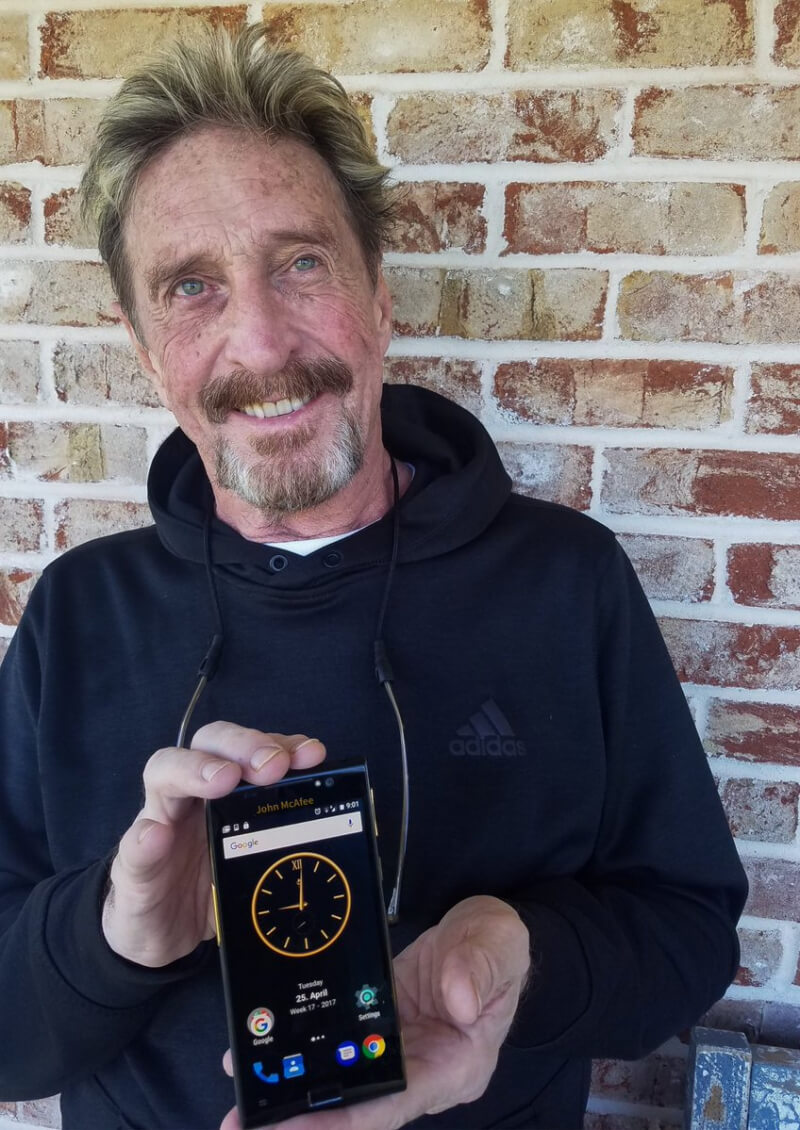Anti-virus pioneer and the most entertaining man in tech, John McAfee, has revealed plans to create the most secure smartphone ever manufactured. The device's $1100 price will exceed that of the iPhone 8, but McAfee says it'll offer an unparalleled level of protection.
The "world's first truly private smartphone" will be released through MGT Capital Investments Inc. The firm made McAfee its CEO last year, and it now deals in cybersecurity and cryptocurrency matters.
MGT signed a non-binding letter of intent with Nordic IT Sourcing Association last month to develop the phone.
"We have given the keys to the kingdom, blindly and willingly, to the world's hackers," McAfee wrote in a blog post. "Pleas from the cybersecurity community to smartphone manufacturers to fix this horrific problem by returning to the less 'cool' air gapped physical switches have fallen on deaf ears. In desperation, I decided to do it myself."
The phone is primarily aimed at enterprise users, but McAfee believes it could appeal to everyday consumers who are concerned about growing reports of government and corporate spying.
The exact specifications of the phone won't be released publicly until the week before its launch. McAfee says version one won't be hack proof, but will still be light years ahead of other handsets that claim to be secure. Version two, available in early 2018, will be "as hack-proof as humanly possible."
"Enormous investment in hardware costs have gone into this," he told Newsweek. "The [smartphone has] switches on the back cover that allow the user to physically disconnect the battery, the antennas for Wi-Fi, Bluetooth and geolocation, the camera and microphone, etc. It also will not allow the phone to connect to a Stingray or any other IMSI catcher."
Speaking about the fact his handset "partly" runs the Android OS, Mcafee tweeted that "Hardware has everything to do with security. Software has everything to do with insecurity."
The phone is scheduled for release sometime during early fall of this year. It may be welcomed by privacy-conscious companies, but it'll be interesting to see how popular it becomes with consumers, many of whom value features and design over security.
